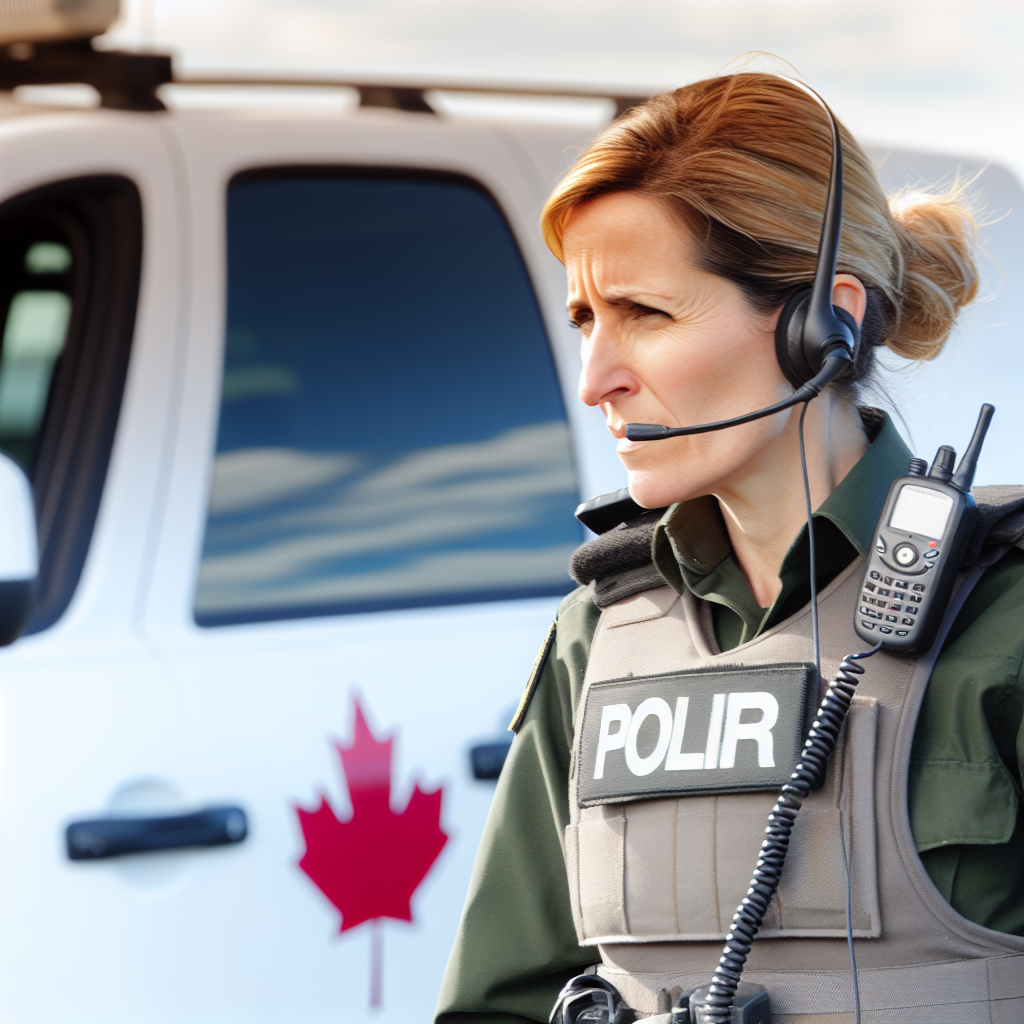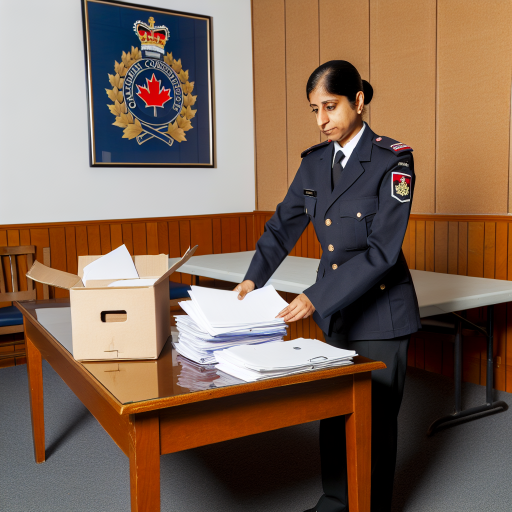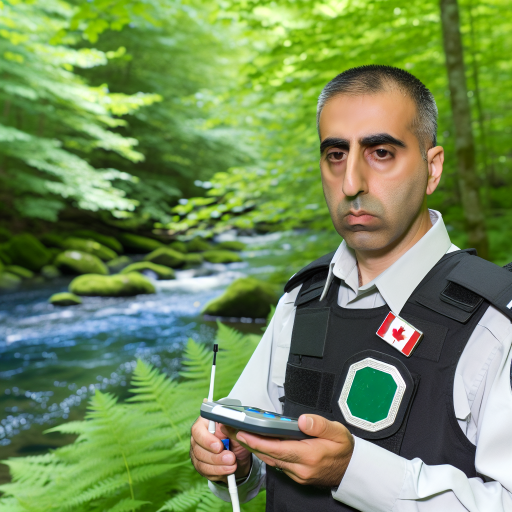Overview of Border Services Work
Border services work plays a crucial role in national security.
These professionals monitor and manage the movement of people and goods.
They ensure compliance with laws and regulations at border crossings.
Additionally, they facilitate legal trade and travel while preventing illegal activities.
Roles and Responsibilities
Border services personnel possess diverse responsibilities.
They conduct inspections of vehicles and cargo.
Furthermore, they interview travelers to assess risks.
They also process documents and verify identities.
As a result, they play a pivotal role in maintaining safe borders.
Required Skills
Successful border services workers have various essential skills.
First, they must exhibit strong communication abilities.
Moreover, they need to demonstrate critical thinking skills.
Attention to detail is vital for their daily tasks.
Also, they should remain calm under pressure during challenging situations.
Collaboration with Other Agencies
Border services often collaborate with other government agencies.
This cooperation enhances the effectiveness of operations.
They work alongside law enforcement and health authorities.
Such teamwork ensures a comprehensive approach to border security.
Physical Demands
Border services work has significant physical requirements.
Professionals often spend long hours on their feet.
They may need to lift heavy objects during inspections.
Additionally, they may engage in walking or running for pursuit situations.
Overall, physical fitness is crucial for performing these duties effectively.
Mental Requirements
The mental demands of this job are equally important.
Border services workers must maintain focus for extended periods.
Unlock Your Career Potential
Visualize a clear path to success with our tailored Career Consulting service. Personalized insights in just 1-3 days.
Get StartedThey face various stressful situations, requiring quick problem-solving.
Additionally, individuals should be adaptable to changing environments.
Emotional resilience helps in managing the pressures of the role.
Physical Fitness Requirements
Importance of Physical Fitness
Physical fitness is critical for effective border services work.
It prepares employees for the demands of the job.
Moreover, fitness enhances endurance and agility on duty.
Cardiovascular Endurance
Border services work often requires extensive walking or running.
As a result, candidates must develop strong cardiovascular endurance.
Engaging in activities like running, cycling, or swimming helps.
Strength and Agility
Physical confrontations may occur during border enforcement.
Therefore, strength training is essential for candidates.
Agility training also helps in navigating diverse environments.
Incorporating exercises like squats, lunges, and push-ups is beneficial.
Flexibility and Balance
Flexibility aids in preventing injuries during field operations.
Practicing yoga or stretching regularly improves flexibility.
Balance is equally important for maneuvering in challenging terrains.
Adaptation to Diverse Scenarios
Work conditions can vary greatly from day to day.
Candidates should prepare for both urban and rural scenarios.
Training in real-life scenarios builds readiness for various tasks.
Nutritional Considerations
Proper nutrition supports overall physical fitness and performance.
Eating a balanced diet enhances energy levels.
Hydration is also vital, especially during long shifts.
Regular Assessment and Training
Regular fitness assessments ensure candidates meet required standards.
Continuous training helps maintain and improve physical condition.
Employers often provide access to training programs and facilities.
Mental Resilience and Stress Management
The Importance of Mental Resilience
Mental resilience is crucial in border services work.
This role often presents high-stress situations.
Workers must respond effectively to unexpected challenges.
Strengthening mental resilience can enhance coping abilities.
Furthermore, resilient individuals tend to maintain focus and clarity.
Understanding Stress Management Techniques
Effective stress management is vital for maintaining productivity.
Workers should adopt various techniques to manage stress levels.
Techniques include deep breathing and mindfulness exercises.
Additionally, regular physical activity can reduce stress significantly.
Engaging in hobbies can also serve as a healthy outlet.
Building a Supportive Work Environment
A supportive work environment enhances mental resilience.
Team collaboration encourages open communication among staff.
Moreover, organizations should provide mental health resources.
Access to counseling services can alleviate employee stress.
Creating a culture of support ultimately benefits everyone.
Continuous Learning and Adaptation
Border services personnel should embrace continuous learning.
Ongoing training helps employees adapt to changing situations.
It also builds confidence in handling various challenges.
Moreover, workers gain insights from shared experiences.
This collective knowledge improves overall team resilience.
Delve into the Subject: Inside the Canadian Border Services Recruitment Process
Communication Skills and Interpersonal Relations
Importance of Effective Communication
Effective communication is crucial in border services work.
It fosters understanding between officers and the public.
Additionally, clear communication enhances cooperation during inspections.
Officers must convey information accurately and promptly.
Moreover, they need to interpret responses from diverse individuals.
Listening Skills
Listening is as vital as speaking in border services work.
Officers should pay close attention to individuals’ concerns.
This skill helps in assessing situations correctly.
Furthermore, active listening establishes trust with the public.
It also aids in gathering essential information effectively.
Interpersonal Relations
Building good relationships is important in border services.
Officers interact with various stakeholders daily.
These include travelers, business representatives, and law enforcement personnel.
Positive interactions create a safer and more cooperative environment.
Cultural Sensitivity
Cultural sensitivity is critical in border services work.
Officers must understand diverse cultural backgrounds.
Respecting differences fosters goodwill and understanding.
Training in cultural awareness enhances communication skills.
Furthermore, it minimizes misunderstandings and potential conflicts.
Conflict Resolution
Conflict resolution skills are essential for border officers.
Officers will frequently encounter stressful situations.
Effective resolution prevents escalation and maintains order.
Officers should employ strategies to manage disputes calmly.
Additionally, seeking collaborative solutions can enhance outcomes.
Explore Further: Ombudsmen as Advocates for Fair Treatment in Society
Crisis Management and Decision-Making Skills
Importance of Crisis Management
Crisis management plays a crucial role in border services work.
It involves quick responses to unexpected incidents.
Moreover, effective crisis management minimizes risks and impacts.
This skill is vital for ensuring safety and security.
Essential Decision-Making Skills
Border services workers must possess strong decision-making skills.
They encounter various scenarios requiring immediate action.
Moreover, informed decisions can prevent potential threats.
Critical thinking enhances the ability to analyze situations efficiently.
Analytical Thinking
Analytical thinking allows border personnel to evaluate information swiftly.
Workers need to assess customs data and passenger behavior.
Additionally, recognizing patterns can identify suspicious activities.
Emotional Intelligence
Emotional intelligence aids in managing interpersonal interactions.
Understanding emotions helps in navigating tense situations.
This skill fosters communication and conflict resolution.
Adaptability
Adaptability is essential in a rapidly changing environment.
Border services staff must adjust to new regulations frequently.
Additionally, they must respond to evolving threats effectively.
Training and Development
Ongoing training enhances crisis management and decision-making skills.
Agencies should provide simulation exercises for real-life scenarios.
This hands-on approach builds confidence and competence in personnel.
Furthermore, workshops can develop emotional and analytical skills.
Building Resilience
Resilience is key for overcoming challenges in border services work.
Workers face stressful situations routinely requiring resilience.
Implementing stress management techniques can enhance well-being.
Additionally, support networks contribute to emotional strength.
Delve into the Subject: Ombudsman Services and Public Accountability Explained

Cultural Competence and Diversity Awareness
The Importance of Cultural Competence
Cultural competence plays a vital role in border services work.
It enables personnel to interact effectively with diverse populations.
Understanding different cultural perspectives enhances communication.
This skill helps in fostering trust and respect among individuals.
Diversity Awareness Training
Diversity awareness training is essential for all employees.
Training programs should focus on key cultural differences.
These programs can help staff recognize unconscious biases.
Furthermore, they promote inclusivity in border services.
Benefits of Embracing Diversity
Embracing diversity leads to a richer work environment.
Diverse teams bring varied perspectives to problem-solving.
This diversity also improves customer service at border points.
It contributes to more effective conflict resolution.
Practical Strategies for Enhancing Cultural Competence
Agencies should implement ongoing cultural competence workshops.
Encouraging language training can also be beneficial.
Support systems should be established for sharing cultural insights.
Regular feedback on diversity initiatives can help refine strategies.
See Related Content: Key Responsibilities of a Veterans Affairs Officer
Legal Knowledge and Ethics in Border Services
Importance of Legal Knowledge
Legal knowledge is crucial for effective border services work.
It ensures compliance with laws and regulations.
Border services personnel must understand immigration laws.
They should also be familiar with customs regulations.
Knowledge of human rights laws is equally important.
This understanding helps in protecting individuals’ rights.
Moreover, it aids in upholding national security.
Ethical Standards in Border Services
Ethics play a vital role in border services operations.
Personnel must adhere to high ethical standards consistently.
They should treat all individuals with respect and dignity.
Additionally, ethical behavior fosters public trust.
Maintaining integrity is essential for effective service delivery.
Thus, personnel should avoid conflicts of interest.
Training on Legal and Ethical Issues
Ongoing training is necessary for border services personnel.
This training encompasses legal updates and ethical practices.
Staff should regularly participate in workshops and seminars.
These sessions help reinforce their legal knowledge.
Moreover, they promote ethical considerations in their daily tasks.
Accountability and Transparency
Accountability ensures that personnel uphold laws and ethical standards.
Border services agencies must establish clear accountability measures.
Transparency builds trust between services and the public.
Open communication can aid in addressing concerns effectively.
Additionally, reporting mechanisms should be in place.
Community Engagement and Education
Engaging with the community enhances the effectiveness of border services.
Education campaigns can inform the public about rights and laws.
Such initiatives promote a better understanding of border services roles.
Furthermore, community involvement can improve cooperation.
This partnership helps in achieving mutual goals effectively.
Training and Development Programs for Border Services Personnel
Overview of Training Regimens
Training is crucial for border services personnel.
It prepares them for the unique challenges of the job.
Programs focus on physical, mental, and technical skills.
Participants engage in various training modules.
These modules cover law enforcement, security protocols, and emergency response.
Physical Training Components
Physical fitness is essential for border service jobs.
Personnel undergo regular fitness assessments.
Training includes strength and endurance exercises.
Moreover, agility drills enhance operational effectiveness.
Officers learn self-defense techniques to manage difficult situations.
Mental Preparedness Programs
Mental resiliency is as important as physical readiness.
Training includes stress management workshops.
Psychological support is readily available.
Personnel also participate in scenario-based exercises.
These exercises simulate real-life border scenarios.
Technical Skill Development
Modern border services require advanced technical knowledge.
Training covers the use of surveillance equipment.
Officers learn about data analysis for security assessments.
Furthermore, training emphasizes the importance of technology.
Personnel receive training on cybersecurity best practices.
Continuing Education and Career Advancement
Ongoing education plays a vital role in career growth.
Personnel have access to workshops and seminars throughout their careers.
Certification programs validate their skills in special areas.
Additionally, advanced courses prepare officers for leadership roles.
Such opportunities foster professional development and expertise.




